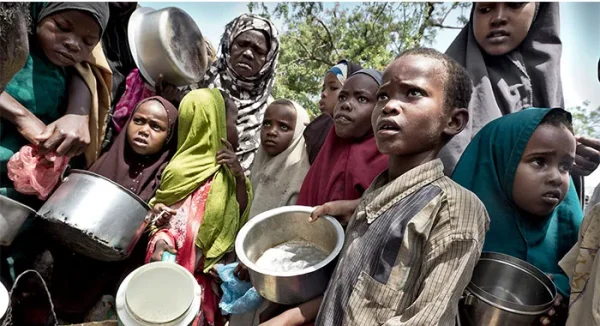The European Union (EU) has announced an additional allocation of €35 million for humanitarian assistance across several West African countries facing severe crises.
The funding targets Burkina Faso, Mali, Niger, Mauritania, Gulf of Guinea coastal countries, and Nigeria, all of which are grappling with food insecurity and displacement due to escalating political instability, ongoing conflicts, and widespread violence.
The EU stated that the funding would be used to address the emergency needs of the most vulnerable populations, focusing on areas such as food assistance, nutrition, health, water, sanitation, shelter, and protection.
Specifically, the funds will be distributed as follows: €10 million for Burkina Faso, €8 million each for Mali and Niger, €1 million for Mauritania, €5 million for Nigeria, and €3 million for the Gulf of Guinea countries.
This additional funding increases the EU’s total humanitarian aid to these regions to €160.6 million for the year.
The EU highlighted the worsening humanitarian situation in West and Central Africa, regions plagued by conflict, insecurity, and climate change.
The crises have led to unprecedented forced displacements, acute food insecurity, and severe malnutrition.
Violence and violations of International Humanitarian Law (IHL) have significantly hindered the delivery of humanitarian aid, particularly in Burkina Faso, Niger, and Mali, where access to many areas is limited.
This has left millions of people without adequate assistance.
The conflict’s spillover into coastal countries such as Benin, Côte d’Ivoire, Ghana, and Togo has exacerbated insecurity, displacement, and growing humanitarian needs.
In Mauritania, 10% of the population is facing food insecurity, while in Nigeria, the volatile security situation in the Northeast and Northwest regions continues to drive forced displacements and requires multi-sectoral support.
The regions are also experiencing a significant rise in malnourished children, with the 2024 lean season expected to be the most severe in the last seven years.


